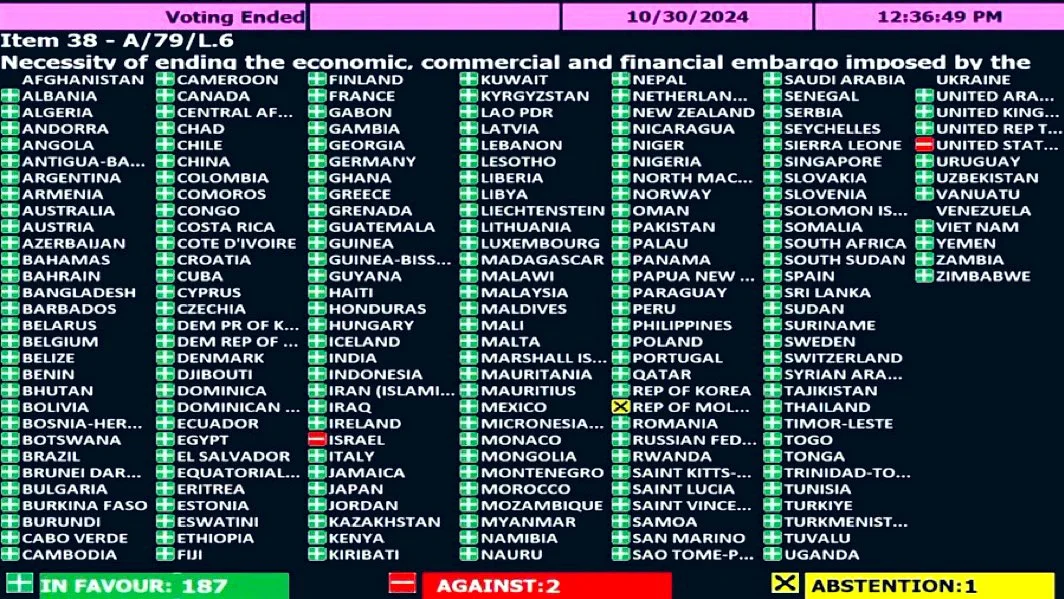Donald Trump’s imminent return to the White House was not the surprise it was when he won his first term, Chinese officials have said, and this time, policy strategy and contingencies have been planned well in advance.
When Trump won the 2016 US presidential election, Beijing, like the rest of world, was caught off guard because attention had focused on Democratic nominee Hillary Clinton, the country’s former top diplomat and a familiar face for Beijing.
Speaking on condition of anonymity, Chinese officials told the Post that a mix of research and preparation was under way well before election day so that Beijing would be better prepared in the event of a second Trump term.
Discussions on how to prepare for the possibility of a second Trump term began in the spring, according to an official overseeing research.
A source familiar with the situation said advisers wrote reports on how to manage such an outcome.
The person added that he believed Chinese officials were also looking into the prominent role that the world’s richest person – Elon Musk – had played, as well as his ties with China.
The Tesla and SpaceX boss gave more than US$120 million to help fund Trump’s campaign. Musk has also had extensive dealings with top Chinese leaders due to his business in China, but it is unclear what role the billionaire will play in the new administration.
Trump’s victory will not affect China’s general economic direction; it has been set with all kinds of scenarios taken into consideration, according to a contact from a central level economic-related office.
“But when Trump comes back, the US may resume its strategy of pulling back and pushing for manufacturing to return home, escalating the trade war, and this could create barriers to exporting products and affect the real economy in China,” the person added.
Another source familiar with China’s Middle East foreign policy said China may have to adjust its diplomatic strategy in view of Trump’s steadfast support for Israel and his bold moves in his first term to relocate the US embassy from Tel Aviv to Jerusalem.
The possibility of an intensified arms race is also on Beijing’s radar, according to the source.
Trump’s stance on China may not differ much from his first term but “its indirect policies – those affecting areas outside China – and their impact would be very different [when they land on China]”, a contact with a trade-related office said.
The US approach to China has seen a major shift, and Trump in 2017 listed China, along with Russia, as America’s primary threats. Under Trump, tensions between the two countries spilled over from trade to technology, and from geopolitics to ideology.
Zhu said China’s approach to US policy was already set and remained consistent. “Even with its pressure on China, Beijing continues to emphasise that both countries should still work together,” he said.
“Still, there is no way that you can sufficiently prepare for it. Now with Republicans dominating the White House and the Senate, the Congress could push agendas much further than we have seen under Biden, such as on the removal of [most-favoured nation] status and on diplomatic recognition of Taiwan.”
Neil Thomas, a fellow for Chinese politics at the Asia Society Policy Institute’s Centre for China Analysis, said: “China is better prepared for Trump this time, and [Chinese President Xi Jinping] is likely to target his preference for deal-making to press for strategic advantage in the Indo-Pacific.”
China would look to divide and rule US allies and partners by trumpeting Beijing’s support for economic globalisation and framing Washington as a disruptive force, he added.
The US and China have each built up their respective alliances over the past couple of years in economic, military and diplomatic fields.
China’s top challenge under Trump would be guiding its delicate economy through the bruising tariff war that he wanted to unleash, he said.
Archive link





The Zacua MX2 and MX3 from the video seem to be around 30k USD